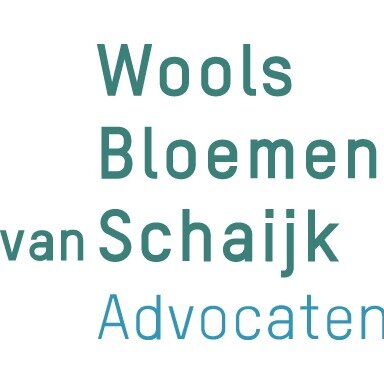Best Inheritance Law Lawyers in Nijmegen
Share your needs with us, get contacted by law firms.
Free. Takes 2 min.
List of the best lawyers in Nijmegen, Netherlands
1. About Inheritance Law in Nijmegen, Netherlands
Inheritance law in the Netherlands is national law that Nijmegen residents apply to estates and heirs. The core framework is found in the Dutch civil code, specifically Boek 4 (Erfrecht). Wills, succession, and distribution of assets are handled through notaries and, in some cases, the civil court. The rules cover who inherits, how property is divided, and the rights of spouses and children, including reserved portions known as legitimate heirs.
In Nijmegen, the practical process often begins with a notary who drafts or validates a will, arranges the transfer of assets, and prepares required declarations. If disputes arise or there are large or complex estates, parties may involve the Rechtbank Gelderland for adjudication. Notaries play a central role in estate planning, probate, and the execution of testamentary instructions.
For families with cross-border elements or unique circumstances, expert legal guidance helps prevent delays and misunderstandings. While the law is national, Nijmegen residents frequently rely on local notaries and the Gelderland judiciary to ensure smooth handling of estates after a death.
Source: Erfrecht is primarily governed by Boek 4 of the Burgerlijk Wetboek (civil code) and applied across the Netherlands, including Nijmegen.
2. Why You May Need a Lawyer
These concrete, Nijmegen-specific scenarios commonly require legal counsel in Inheritance Law matters.
- You suspect a will is contested or unclear, and you need to verify its validity and interpret the testamentary provisions under Dutch law.
- A spouse or child challenges the distribution because of the reserved portion (legitime) or other statutory rights in an intestate situation.
- There are multiple heirs with differing claims, or there is missing information about a deceased person’s assets in Gelderland.
- Real estate or property in Nijmegen is part of the estate and requires transfer formalities, mortgage settlement, or cadastral updates.
- Tax planning is essential to minimize inheritance tax (successierechten) after death and correctly file with the Belastingdienst.
- You must appoint an executor or administrator and need help drafting or validating the necessary court or notary documents.
3. Local Laws Overview
Below are the main legal references that govern Inheritance Law in Nijmegen, with notes on how they operate in practice.
- Burgerlijk Wetboek Boek 4 (Erfrecht) - The primary source of rules for inheritance, wills, and intestate succession. It covers reserved rights for close relatives and the process for accepting or renouncing an inheritance. Practical applications occur via notaries and, when needed, the civil courts. Official texts are available at wetten.overheid.nl.
- Notariswet - Sets the duties and authority of notaries in sequence with estate planning, execution of wills, and the transfer of assets. In Nijmegen, notaries use this framework to prepare and register deeds related to estates. Official guidance is published on dutch legal portals.
- Successiewet 1956 (Inheritingsbelasting) - The tax framework for inheritance and gifts, administered by the Belastingdienst. Rates and exemptions depend on relationship to the deceased and the value of the estate. Updates to thresholds occur periodically; verify current figures with the Belastingdienst for accuracy.
Recent trends include ongoing updates to tax thresholds and annual adjustments to procedures for estate settlement, which may affect deadlines and required documents. Always consult current government materials and a local solicitor or notary for the latest rules and figures.
Source: Inheritance tax rules and rates are administered by the Belastingdienst and updated periodically.
Source: Boek 4 Erfrecht provides the statutory framework for wills, heirs, and intestate succession.
4. Frequently Asked Questions
What is Erfrecht and why does it matter in Nijmegen?
Erfrecht is the branch of law governing inheritance and wills in the Netherlands. It matters in Nijmegen because local probate timing and notarial practices affect how estates are settled here.
How do I start probate after a death in Nijmegen?
Contact a local notary to assess whether an acte van erfrecht is needed. The notary forms the basis for asset transfer and debt settlement in the estate.
What is the role of a notary in inheritance matters?
A notary drafts wills, handles executorship details, and executes the transfer of property. In the Netherlands, notaries are central to estate administration and estate distribution.
How much does a Nijmegen inheritance lawyer typically charge?
Costs vary by case complexity and lawyer experience. Typical fees include a fixed consult fee and hourly rates for document drafting and court work; confirm a written estimate before engagement.
How long does an estate settlement usually take in Gelderland?
Simple estates may conclude in 6 to 12 months. Complex cases with multiple heirs or disputes can take 12 to 24 months or longer, depending on cooperation and court involvement.
Do I need to go to court for a Nijmegen estate?
Most estates are settled via notarial documents, but disputes or contested wills may require court involvement at Rechtbank Gelderland.
What is forced heirship in Dutch law?
Forced heirs are close relatives who have reserved rights to a portion of the estate. This reduces the testator's freedom to distribute all assets arbitrarily.
Is a will required to pass on assets in the Netherlands?
No, a will is not required. Without a will, assets pass according to intestate succession rules, which may differ from a person’s wishes.
Should I accept or renounce an inheritance?
Consider debts and liabilities of the estate. You can renounce if the liabilities may exceed the assets, but this decision has specific formal steps.
Can I contest a will in Nijmegen?
Yes, you can challenge validity or the interpretation of a will, typically via a lawyer and possibly the court, if you have a legal basis such as lack of capacity or coercion.
What is the difference between an executor and a beneficiary?
An executor administers the estate, pays debts, and distributes assets per the will. A beneficiary is someone who receives assets or benefits from the estate.
Do I have to pay inheritance tax in the Netherlands?
Most estates pay inheritance tax or related charges. Tax responsibility depends on the relationship to the deceased and the estate's value. Check Belastingdienst guidance for current rules.
5. Additional Resources
Use these official resources for authoritative guidance and up-to-date rules on Inheritance Law.
- Belastingdienst - Dutch tax authority with information on inheritance tax, exemptions, and filing requirements. https://www.belastingdienst.nl
- Koninklijke Notariële Beroepsorganisatie (KNB) - Professional body for notaries; guidance on notarial practice and finding a qualified notary in the Netherlands. https://www.knb.nl
- Rechtspraak.nl - Official portal for Dutch judiciary information, including civil procedures related to estates and disputes. https://www.rechtspraak.nl
6. Next Steps
- Collect essential documents: death certificate, will (if any), and a list of assets and debts. Do this within 1-2 weeks after the death in Nijmegen.
- Consult a Nijmegen-based notary or inheritance lawyer to review the will and determine whether probate is required. Schedule within 1-3 weeks of initial contact.
- Decide on the correct path: simple estate with a will may go through a notary; contested or complex estates may require court involvement. Confirm timelines and costs with the lawyer.
- Have the notary prepare the acte van erfrecht or equivalent documents. Expect filing and signing within 2-6 weeks depending on cooperation of heirs.
- Arrange asset transfer and tax planning with the Belastingdienst and the notary. Gather asset statements and debt information for tax calculations. Timeline varies by estate size and complexity.
- File any required tax declarations or obligations for inheritance with Belastingdienst. Complete the process according to the guidance provided by your lawyer and the Belastingdienst.
- Distribute assets to beneficiaries once all debts, taxes, and legal requirements are satisfied. The process may take several months to over a year for complex estates in Nijmegen.
Lawzana helps you find the best lawyers and law firms in Nijmegen through a curated and pre-screened list of qualified legal professionals. Our platform offers rankings and detailed profiles of attorneys and law firms, allowing you to compare based on practice areas, including Inheritance Law, experience, and client feedback.
Each profile includes a description of the firm's areas of practice, client reviews, team members and partners, year of establishment, spoken languages, office locations, contact information, social media presence, and any published articles or resources. Most firms on our platform speak English and are experienced in both local and international legal matters.
Get a quote from top-rated law firms in Nijmegen, Netherlands — quickly, securely, and without unnecessary hassle.
Disclaimer:
The information provided on this page is for general informational purposes only and does not constitute legal advice. While we strive to ensure the accuracy and relevance of the content, legal information may change over time, and interpretations of the law can vary. You should always consult with a qualified legal professional for advice specific to your situation.
We disclaim all liability for actions taken or not taken based on the content of this page. If you believe any information is incorrect or outdated, please contact us, and we will review and update it where appropriate.










